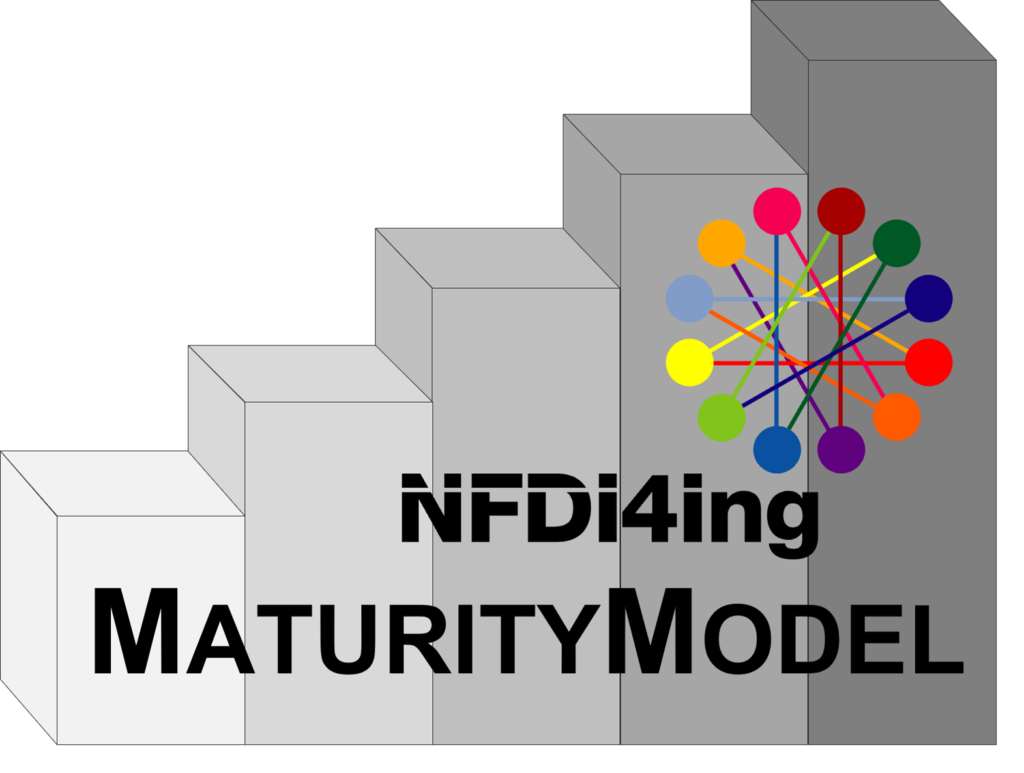For quality assurance of research data management, NFDI4Ing has developed maturity models that enable researchers to assess the implementation of data management in their research projects.

NFDI4Ing has developed maturity models that allow researchers to assess the quality of their research data management implementation. As researchers are often responsible for the implementation of RDM, the models are aimed directly at them. The assessment models follow an approach that is oriented towards engineering research processes in order to integrate data management-related content alongside research. In this context, research data management was divided into defined phases based on data life cycles in order to have a presentation that is as close to realisation as possible.
To this end, a documentation describing maturity levels and individual models for different research data management phases was drawn up. The individual phase models include the implementation of relevant activities in the context of research data management and an individual maturity model with target definitions for each maturity stage.
The models are available here: maturitymodel.nfdi4ing.de
Community-led standardisation
Researchers can use these models to evaluate their RDM activities and encourage improvements through subsequent maturity stages. The models aim to align RDM activities towards a standardised implementation based on community standards, whereby researchers are provided with additional materials and best practices. In doing so, content developed by NFDI4Ing is presented in the models in order to find an implementation that is orientated as closely as possible to the requirements of the engineering sciences.
In addition to the documentation and content design, checklists are being developed for the application of the maturity models, which are used in rdmo.nfdi4ing.de in the form of a separate template. The team is developing corresponding templates and a catalogue of questions for this purpose.
In this context, it should also be emphasised that DMP4NFDI is a new basic service for NFDI-wide data management plans (DMP) and software management plans. For more information, visit https://base4nfdi.de/projects/dmp4nfdi.
Special Interest Group: “Quality assurance & metrics for FAIR data”
Also on 26 July at 9 a.m., the next meeting of the Special Interest Group (SIG) “Quality assurance & metrics for FAIR data” will take place. This meeting will focus on the quality assurance of RDM based on data management planning and the use of various FAIR checkers. Interested parties can register for participation at the following link: participation link (Zoom).
All interested participants are welcome!
On behalf of NFDI4Ing task area:
“quality assurance in RDM processes and metrics for FAIR data”
Max Wawer
